Notes Help

How can I avoid information overload when taking notes ?
When taking notes, it's easy to become overwhelmed by the sheer volume of information. However, there are strategies you can employ to avoid information overload and ensure that your note-taking is effective and efficient. Here are some tips: 1. Prioritize Information: Determine what information is most important and relevant to your needs. Focus on key concepts, main ideas, and supporting details that are directly related to your goals or assignment requirements. This will help you filter out extraneous information and prevent you from feeling overwhelmed. 2. Use a Systematic Approach: Develop a consistent system for organizing your notes. This could involve using headings, subheadings, bullet points, or numbered lists to break down information into manageable chunks. By doing so, you'll be able to quickly identify and locate specific pieces of information later on. 3. Take Breaks and Review: Taking regular breaks while studying or attending lectures can help reduce cognitive fatigue and improve focus. During these breaks, review your notes briefly to reinforce key concepts and identify areas that may need further clarification or elaboration. 4. Summarize and Paraphrase: Instead of trying to capture every word verbatim, summarize or paraphrase key points in your own words. This not only helps with retention but also encourages active learning as you process the information more deeply. 5. Use Visual Aids: Incorporating diagrams, charts, or other visual aids into your notes can help simplify complex information and make it easier to understand and remember. These tools can also serve as helpful reminders when reviewing your notes later on. By implementing these strategies, you can effectively manage the amount of information you encounter during note-taking sessions and avoid feeling overwhelmed or stressed out. Remember, the goal is not to capture every detail but rather to distill key concepts and retain them for future reference.
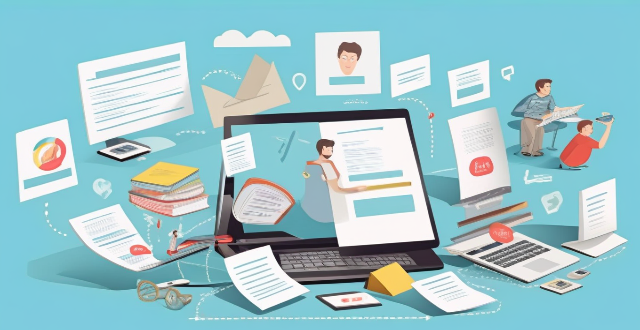
What is the best way to take notes in class ?
The article offers advice on effective note-taking during classes, emphasizing the importance of choosing a method (notebook or laptop), organizing notes with clear structure, focusing on key concepts, using visual aids, reviewing and revising notes, asking questions, and collaborating with classmates. These strategies are crucial for retaining information and understanding lecture content, ultimately contributing to academic success.
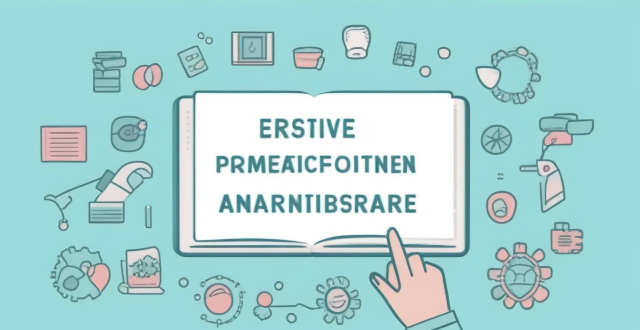
What are the best ways to take notes during a lecture or class ?
The given text provides a detailed guide on how to take effective notes during a lecture or class. It emphasizes the importance of active listening, organizing one's notebook, using shorthand and abbreviations, focusing on key ideas, utilizing visual aids, reviewing notes, collaborating with peers, and leveraging technology for note-taking. The strategies aim to enhance learning and retention by capturing essential information efficiently.
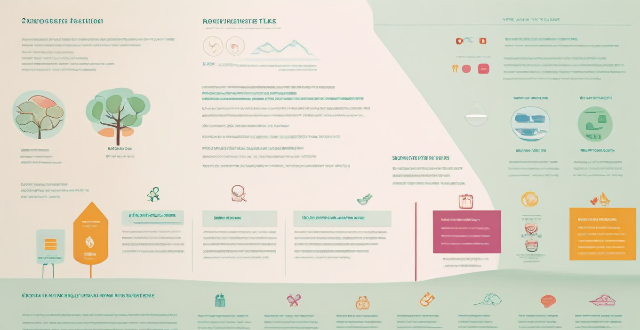
How do I organize my notes for better understanding and retention ?
This comprehensive guide outlines effective strategies for organizing notes to improve understanding and retention. It emphasizes the importance of a consistent format, color-coding, personalizing notes, incorporating visual aids, regular review and revision, integrating real-world examples, maintaining cleanliness and organization, and leveraging technology. By adopting these practices, individuals can enhance their learning experience and retain information more effectively.
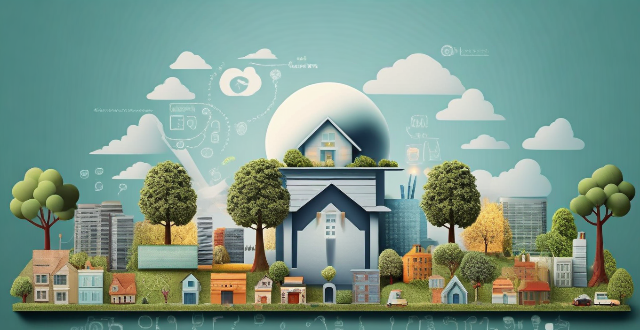
How often should I revisit and update my notes ?
Revisiting and updating your notes is a crucial learning process that helps reinforce information, identify areas needing attention, and keep notes relevant and organized. Immediately after class or meeting, review key points, fill in gaps, and organize the information. Within 24-48 hours, consolidate learning, connect ideas, and identify questions. Weekly reviews should summarize concepts, integrate with other subjects, and reflect on understanding. Monthly reviews aid long-term retention, update notes, and prepare for assessments. Before major assessments, do a comprehensive review, practice application, and create study aids. Ongoing maintenance includes cleanup, indexing/categorizing, and digital backup. The frequency of revisiting and updating notes depends on subject complexity, learning goals, and deadlines.

What are some strategies for taking effective notes during history classes ?
Strategies for taking effective notes during history classes include preparation, active listening, organization, key terms and concepts, visual aids, summarizing, and review and revise. Preparation involves having necessary materials and reviewing assigned readings. Active listening requires focusing on the instructor's words and connecting them with the readings. Organization means using a consistent format for notes, such as bullet points or outlines. Key terms and concepts should be written down, and visual aids like diagrams or timelines can help visualize information. Summarizing main points after each class reinforces understanding, and regular review and revision of notes can improve retention.
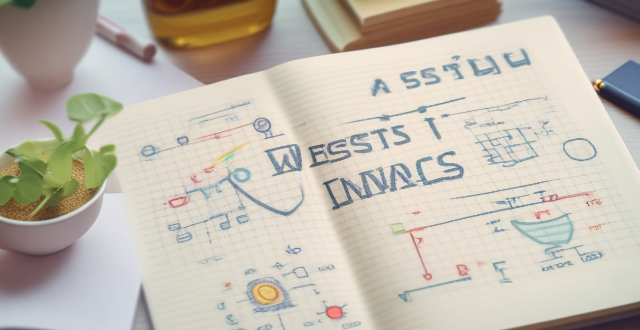
What is the best way to review and revise my notes before an exam ?
The best way to review and revise notes before an exam involves organizing your notes, using active learning techniques such as self-testing and teaching others, employing spaced repetition for better retention, mixing up study methods, maintaining good health through sleep and nutrition, and conducting a final review closer to the exam date. Consistent and continuous study habits are crucial for success.
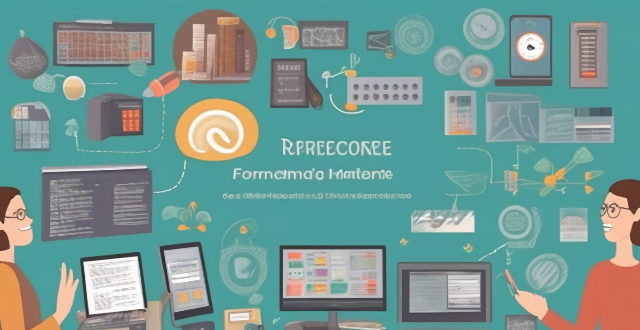
Is there a specific format or structure that works best for taking notes ?
Taking effective notes requires finding a format or structure that suits your learning style, subject matter, and personal preferences. Popular note-taking methods include the Cornell Method, the Outline Method, the Mind Map Method, and the Sentence Method. The Cornell Method encourages active learning by prompting you to think about the material as you take notes, while the Outline Method helps you see the big picture and understand how different concepts relate to each other. The Mind Map Method encourages creativity and helps you see connections between different ideas, while the Sentence Method encourages deep thinking and understanding of the material. It's important to experiment with different methods and find the one that works best for you in order to improve your retention, organization, and productivity.
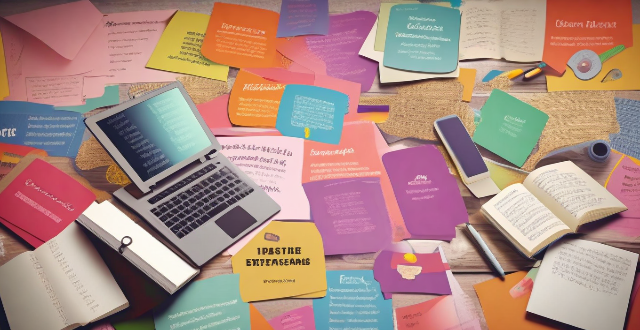
What are some creative ways to make studying from notes more engaging ?
The article discusses various strategies to make note-based learning more engaging and effective. The suggested approaches include interactive notebooks, active review techniques, digital integration, engaging activities, and regular revision schedules. Interactive notebooks involve color coding, diagrams, and margin notes for visual appeal and memory retention. Active review techniques such as teach it back, flashcards, and summarization help in understanding and recalling concepts better. Digital integration tools like note-taking apps, Quizlet, and online collaboration platforms aid in organizing and sharing notes. Engaging activities like role-playing, debates, and gamification elements promote kinesthetic learning and discussions. Regular revision schedules with spaced repetition, review tracking, and reflection time ensure long-term memory retention. By incorporating these strategies, studying from notes becomes a dynamic and engaging process that enhances both understanding and retention of the material.

What are the best methods for taking notes in class ?
The text provides a comprehensive overview of four effective methods for taking notes in class, namely the Cornell Method, Outlining Method, Mind Mapping Method, and Sentence Method. The Cornell Method involves dividing your paper into three sections to organize your notes, while the Outlining Method uses headings and subheadings to create a hierarchical structure. The Mind Mapping Method is a visual technique that involves creating a diagram of connected ideas, and the Sentence Method involves taking notes in complete sentences to better understand and retain information. Each method has its own unique steps and benefits, making it important for students to choose the one that works best for them.
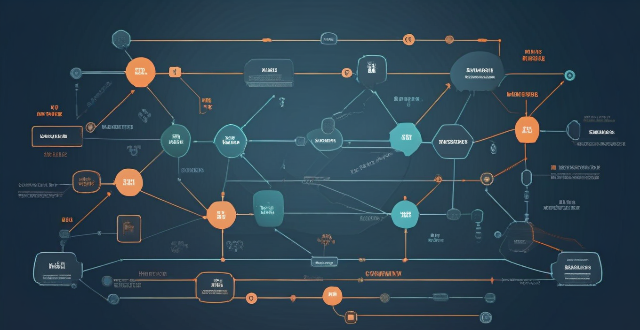
What settings do I need to change to ensure seamless syncing of my Apple Notes across all my devices ?
Ensure seamless syncing of Apple Notes across devices by verifying iCloud account, enabling iCloud sync for Notes, updating software versions, checking network connection, avoiding conflicting changes, using same region and language settings, troubleshooting with iCloud website, and contacting Apple Support if needed.
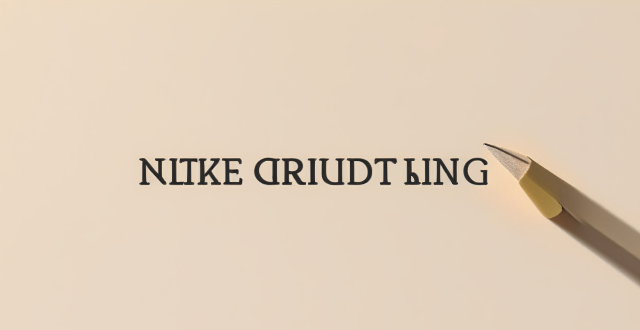
How can I make efficient notes for revision purposes ?
Efficient note-taking is crucial for revision and studying. Use the Cornell Method, highlight key information, use abbreviations and symbols, organize your notes, and review them regularly to improve retention and prepare for exams.

Are there any specific techniques to boost understanding during lectures or presentations ?
Boosting Understanding During Lectures or Presentations Active listening techniques, visual aids, questioning strategies, participation and interaction, and review and reinforcement are all methods to improve understanding during lectures or presentations. Engaging with the material, taking selective notes, using diagrams and illustrations, asking questions, joining group discussions, and reviewing notes promptly can all help enhance comprehension and make it easier to retain and apply the information later on.
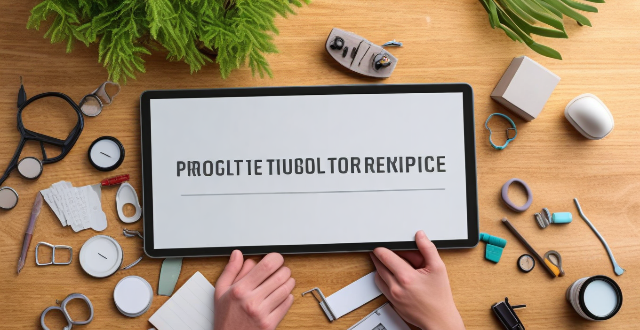
Can you suggest any tools or apps to help with time management ?
The text provides a list of six time management tools and apps, each with its own set of features designed to help users manage their time more effectively. Toggl Track is a time tracking tool that allows users to start and stop timers for different tasks and generates detailed reports. RescueTime is an automatic time tracking app that runs in the background of devices and provides productivity scores. Evernote is a note-taking app that can also be used for creating to-do lists and setting reminders. Trello is a visual project management tool that uses boards, lists, and cards to organize tasks. Google Calendar is a free online calendar for scheduling events and tasks. Forest is a unique app that helps users stay focused by growing virtual trees. The text suggests choosing the tools and apps that align with individual needs and preferences.

How can I improve my note-taking skills during lectures ?
Note-taking is a crucial skill for students, especially during lectures. It helps you retain information, organize your thoughts, and review the material later. Here are some tips on how to improve your note-taking skills during lectures: ## Use the Right Tools ### Choose the Right Notebook or Device - **Spiral-bound notebooks** are great for taking notes because they stay open and flat. - **Digital devices** like laptops or tablets can be useful, but make sure they don't distract you from the lecture. ### Use Appropriate Pens or Pencils - **Pens with comfortable grips** reduce hand fatigue and allow you to write for longer periods. - **Mechanical pencils** don't need to be sharpened and provide consistent line width. ## Develop Effective Techniques ### Practice Active Listening - **Focus on the speaker** and avoid distractions. - **Listen for main ideas** and key terms. ### Use Abbreviations and Symbols - **Create a list of common abbreviations** that you can use consistently. - **Use symbols** like arrows, stars, or underlines to highlight important points. ### Organize Your Notes - **Write headings and subheadings** to separate different topics. - **Use bullet points or numbered lists** to organize information. ## Review and Refine Your Notes ### Review Your Notes Soon After the Lecture - **Rewrite or type up your notes** within 24 hours to reinforce learning. - **Identify any gaps** in your understanding and seek clarification. ### Refine Your Notes Over Time - **Combine your notes with those of classmates** to get a more comprehensive understanding. - **Revise your notes** periodically to ensure they remain organized and relevant.
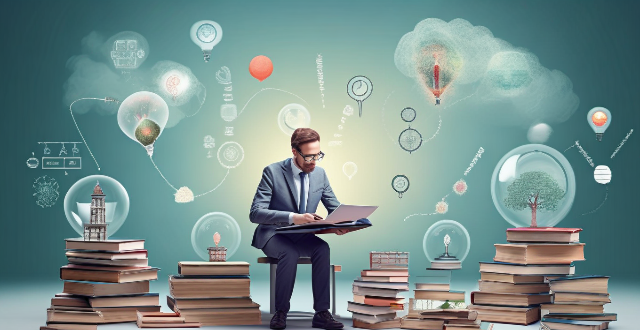
What are some strategies for studying for multiple subjects at once ?
Strategies for studying multiple subjects at once include creating a study schedule, using time management techniques, setting clear goals, employing active learning techniques, staying organized, taking care of oneself, and seeking help when needed. These methods can help maximize learning potential and manage time effectively.
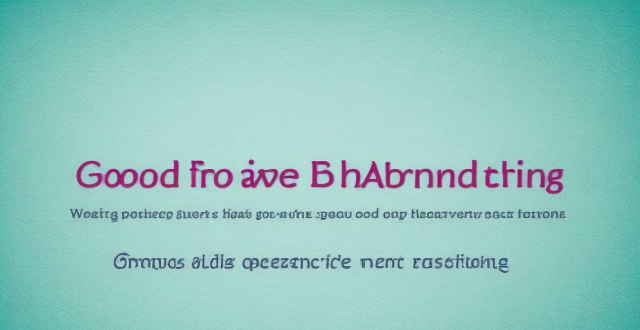
What are some good habits for productive studying ?
The text provides a list of 10 good habits for productive studying, including creating a study schedule, finding a quiet and comfortable study space, taking breaks regularly, staying organized, using active learning techniques, setting goals and prioritizing tasks, eliminating distractions, reviewing regularly, seeking help when needed, and taking care of oneself. These habits can help improve focus, retention, and overall productivity during study sessions.
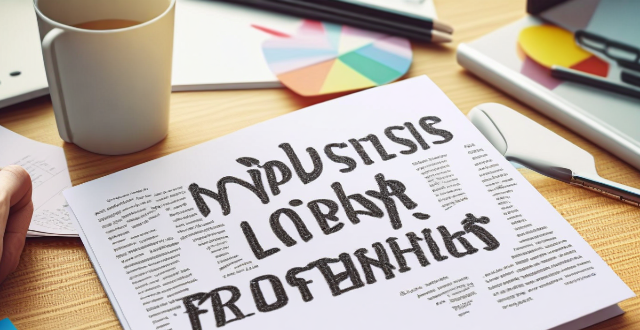
Are there any apps or tools that can help me track my progress in understanding different texts ?
The text discusses various apps and tools that can help users track their progress in understanding different texts, including Reading Comprehension Apps like Quizlet and Khan Academy; Productivity Tools for Text Comprehension such as Evernote and Trello; Online Tools for Text Analysis like SparkNotes and CliffsNotes; and Personalized Learning Platforms like Adaptive Learning Systems. These resources provide features such as flashcards, video tutorials, annotations, note-taking, project boards, database views, plot summaries, character analysis, chapter-by-chapter breakdowns, close reading, personalized pathways, real-time feedback, and reading logs to aid comprehension and monitor progress.

Can speed reading help me save time when studying for exams ?
Speed reading can save time when studying for exams by increasing efficiency, improving recall, managing time better, and reducing stress. However, it may compromise comprehension, not be suitable for all text types, require skill development time, and lead to overconfidence. To effectively use speed reading, start early, combine techniques, take breaks, test comprehension, and customize your approach.

What are some tips for making science experiments at home for educational purposes ?
Science experiments are a great way to engage children in learning about the natural world around them. Here are some tips for conducting science experiments at home for educational purposes: ## 1\. Choose Age-Appropriate Experiments Select experiments that are suitable for your child's age and ability level. Younger children may enjoy simple experiments involving colors, shapes, and basic physical properties, while older children can tackle more complex concepts such as chemical reactions or electricity. ## 2\. Gather Materials in Advance Make sure you have all the necessary materials before starting the experiment. This will help avoid interruptions and frustration during the process. Create a list of required items and gather them ahead of time. ## 3\. Follow Safety Guidelines Safety should always be a top priority when conducting science experiments at home. Ensure that you and your child follow proper safety guidelines, such as wearing protective gear (e.g., goggles, gloves) and working in a well-ventilated area. ## 4\. Involve Your Child in the Process Encourage your child to participate in every step of the experiment, from planning to execution. This will not only make the experience more enjoyable but also help them develop critical thinking skills and problem-solving abilities. ## 5\. Observe and Record Results Observing and recording results is an essential part of any scientific experiment. Encourage your child to take notes throughout the process, documenting their observations and findings. This will help them understand the importance of data collection and analysis in science. ## 6\. Discuss Results and Implications After completing the experiment, discuss the results with your child. Ask questions about what they learned, how the experiment could be improved, and what implications their findings might have on real-world applications. This will help foster their curiosity and interest in science. ## 7\. Clean Up Properly Teach your child the importance of cleaning up after themselves by ensuring that all materials are properly disposed of and surfaces are wiped down. This will help maintain a safe and organized environment for future experiments.
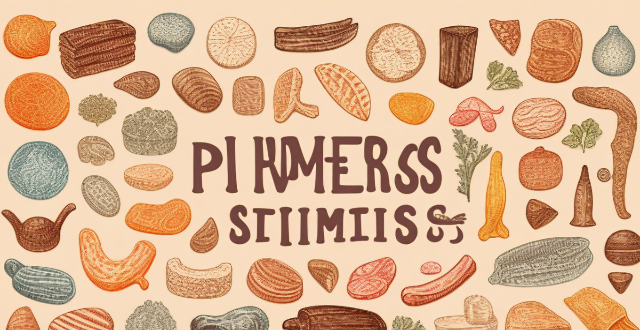
Are there any foods that can help alleviate stress ?
The text provides a summary of foods that can help alleviate stress, including dark chocolate, avocado, blueberries, salmon, and chamomile tea. Each food is explained in terms of its benefits and recommended intake. The article emphasizes that while these foods may help reduce stress levels, they should not be used as a substitute for professional medical advice or treatment.

Can exercise help with stress management ?
**Topic:** Can Exercise Help with Stress Management? **Summary:** * **Introduction:** The inevitability of stress and its potential impact on health highlight the importance of effective stress management. Exercise is often touted as a beneficial method for reducing stress. * **Relationship Between Exercise and Stress:** * **Physical Effects:** Exercise triggers endorphins, reduces cortisol levels, and improves sleep quality—all of which contribute to stress reduction. * **Mental Effects:** Enhanced cognitive function, increased self-esteem, and mindfulness techniques associated with exercise can aid in stress management. * **Benefits of Exercise for Stress Management:** * **Physical Benefits:** Improved cardiovascular health, weight management, and pain relief can reduce stress caused by related health issues. * **Mental Benefits:** Exercise can alleviate symptoms of anxiety and depression, improve mood, and increase resilience to stress. * **Practical Tips:** * **Setting Goals:** Start small and choose enjoyable activities to make exercise a sustainable habit. * **Consistency:** Scheduling workouts, finding an accountability partner, and tracking progress can help maintain a regular exercise routine. * **Conclusion:** Exercise is a powerful tool for managing stress, offering both physical and mental benefits. Incorporating it into one's lifestyle can significantly enhance overall well-being and resilience to life's challenges.

Does lifting weights help with weight loss ?
Weight loss is a common goal for many people, and weightlifting is one of the most popular methods. However, does lifting weights help with weight loss? This article explores the benefits and drawbacks of weightlifting as a means of weight loss. One of the main benefits of weightlifting is muscle growth, which can lead to an increase in metabolism and help with weight loss. In addition, weightlifting can also help with fat burning and improved cardiovascular health. However, there are also some potential drawbacks to weightlifting, including high initial costs, potential injuries, and a significant time commitment. If you are interested in trying weightlifting as a way to lose weight, make sure you do your research and find a program that fits your needs and lifestyle.

Can ESG principles help mitigate climate change ?
ESG principles, which stand for Environmental, SocialESG principles, which stand for Environmental, Social, have become increasingly important in These principles aim to encourage companies to operate in a more sustainable and socially responsible manner. In this context, it is worth exploring whether these principles can help mitigate climate change. The environmental aspect of ESG focuses on reducing the negative impact of business operations on the environment. This includes reducing greenhouse gas emissions, conserving natural resources, and minimizing waste generation. By promoting these practices, ESG principles can contribute to mitigating climate change in several ways: * Reducing Carbon Emissions: Companies that prioritize environmental sustainability are likely to reduce their carbon footprint by using renewable energy sources, improving energy efficiency, and investing in low-carbon technologies. This can help lower global greenhouse gas emissions, which are a major driver of climate change. * Conserving Natural Resources: By promoting sustainable resource management, ESG principles can help reduce deforestation, protect biodiversity, and conserve water resources. These actions can help maintain the health of ecosystems that play a crucial role in regulating the Earth's climate. * Minimizing Waste Generation: Encouraging companies to adopt circular economy models and reduce waste generation can help reduce the amount of greenhouse gases produced during waste disposal processes. Additionally, recycling and reusing materials can help conserve natural resources and reduce the need for new raw material extraction, further contributing to climate change mitigation. The social aspect of ESG focuses on promoting fair labor practices, human rights, and community involvement. While these principles may not directly address climate change, they can indirectly contribute to mitigating its effects by fostering a sense of corporate responsibility and encouraging companies to invest in their communities. This can lead to increased awareness and action around climate change issues, as well as support for policies and initiatives aimed at addressing the problem. The governance aspect of ESG emphasizes transparency, accountability, and ethical behavior within a company's management structure. By promoting good governance practices, ESG principles can help ensure that companies are held accountable for their environmental impact and are more likely to adopt sustainable business strategies. This can lead to increased transparency around carbon emissions reporting, better alignment between corporate goals and climate objectives, and improved stakeholder engagement on climate-related issues. In conclusion, ESG principles can certainly help mitigate climate change by promoting environmentally sustainable business practices, fostering a sense of corporate responsibility, and ensuring transparency and accountability within companies' management structures. However, it is important to note that these principles alone may not be sufficient to fully address the complex challenges posed by climate change. A comprehensive approach involving government policies, international cooperation, and individual actions will also be necessary to achieve meaningful progress in mitigating the effects of climate change.

How do I stay motivated when studying for long periods of time ?
Staying motivated during long study sessions can be challenging, but setting clear goals, creating a conducive environment, taking breaks, using effective strategies, and staying positive can help. Identify your purpose, break down goals into smaller tasks, celebrate accomplishments, minimize distractions, organize materials, schedule regular breaks, engage in physical activity, practice relaxation techniques, actively engage with the material, review regularly, seek help when needed, maintain a positive attitude, and stay persistent.

Can sport monitoring technology help prevent injuries ?
Sport monitoring technology has become increasingly popular in recent years, with many athletes and coaches using it to improve performance and prevent injuries. This technology includes wearable devices such as fitness trackers, heart rate monitors, and GPS tracking systems, as well as more advanced technologies like motion capture systems and force plates. Sport monitoring technology works by collecting data on an athlete's movements, heart rate, and other physiological factors. This data is then analyzed to provide insights into the athlete's performance and identify areas where they may be at risk of injury. By tracking an athlete's movements and physiological factors, sport monitoring technology can identify potential injury risk factors early on, help coaches create personalized training plans for each athlete based on their individual needs and abilities, monitor recovery periods between sessions, and educate athletes and coaches about injury prevention strategies. Overall, there is evidence to suggest that sport monitoring technology can help prevent injuries in several ways. However, it is important to note that no technology can completely eliminate the risk of injury, and proper training, conditioning, and safety measures should always be prioritized.

Can exercise help manage symptoms of ADHD ?
Exercise can be a powerful tool in managing symptoms of ADHD by improving focus, reducing impulsivity, increasing energy levels, and promoting better sleep. Choosing the right type of exercise, setting realistic goals, and creating a consistent routine are essential for reaping the full benefits of physical activity for ADHD management.
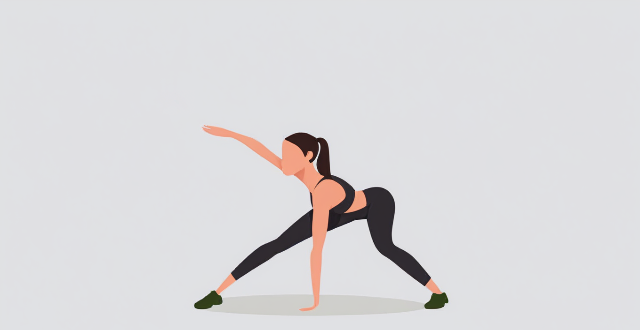
How does exercise help in managing stress ?
Stress is an inevitable part of life, but regular exercise can help manage it effectively. Exercise releases endorphins, reduces muscle tension, improves sleep quality, boosts self-esteem and confidence, provides a sense of accomplishment, and promotes social interaction. To incorporate exercise into your daily routine, start slowly, find an activity you enjoy, make it a part of your routine, mix up your routine, and don't overexert yourself. By doing so, you can reap the numerous benefits of exercise for stress management and overall well-being.

Can certain foods help reduce inflammation in athletes
Certain foods can help reduce inflammation in athletes. These include anti-inflammatory spices, fruits and vegetables, whole grains, healthy fats, and protein. It's also important to avoid processed foods, sugary drinks, and red meat. By eating a balanced diet full of healthy foods, athletes can reduce inflammation and improve their performance.
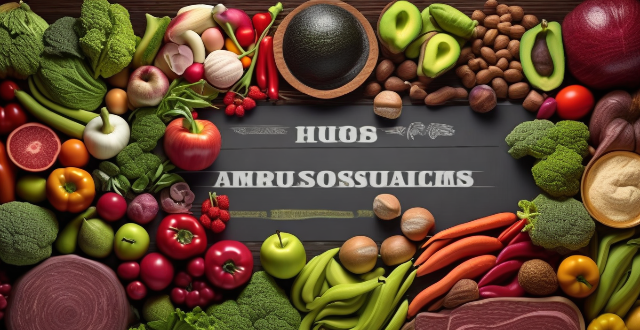
Can engaging in sports help with weight management ?
Engaging in sports can help with weight management by increasing calorie burn, improving metabolism, increasing muscle mass, reducing the risk of obesity-related diseases, and providing mental health benefits. However, a healthy diet and lifestyle habits are also essential for long-term success.